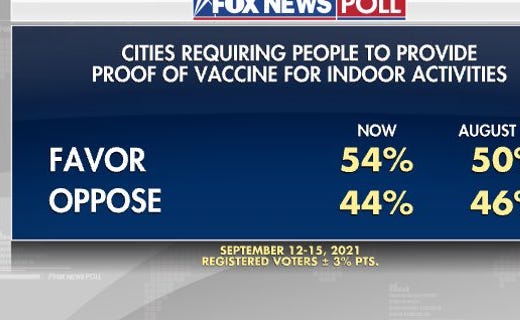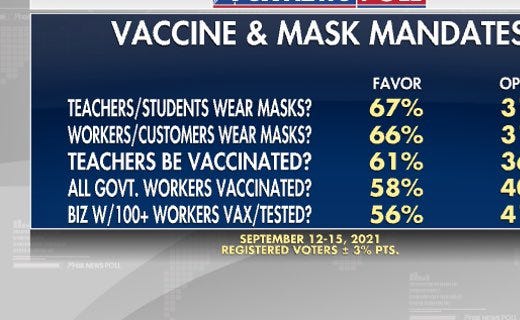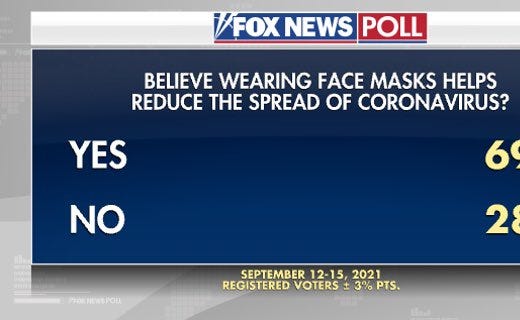What Should We Do with a President Experiencing Mental Decline?
How a General tried to contain Donald Trump.
Hello my habibis. You are getting one last Jackal from me before I go on my paternity break. I have already (mostly) secured a lineup of excellent guest writers who are going to take over while I’m gone. For instance, next week you will get a post from an actual epidemiologist (!) who can talk about the vaccines.
But for this week, you’ll have to settle for me. I liked the organization thing I did last week, so let’s do it again:
General Milley called China to assure them that Trump wasn’t going to nuke the planet.
We are nuking Australia AND FRANCE (not really).
A relic of the Trump Administration gets his first indictment.
Should-reads.
So, the big, big story this week was actually a story about September 21, 2021. Why? That is the date Peril is released, which is a book by Bob Costa and Bob Woodward (no relation). As excerpts from the book were released and everyone started freaking out about the reporting by the Brothers Bob, both the media in general and conservative media in particular learned valuable lessons.
On Tuesday, The Washington Post ran with an excerpt from the book which detailed how General Mark A. Milley - chairman of the Joint Chiefs of Staff - got so freaked out by Trump’s erratic behavior after the election that he called his counterpart in China to assure them that the U.S. wasn't actually about to collapse:
“General Li, I want to assure you that the American government is stable and everything is going to be okay,” Milley told him. “We are not going to attack or conduct any kinetic operations against you.”
In the book’s account, Milley went so far as to pledge he would alert his counterpart in the event of a U.S. attack, stressing the rapport they’d established through a backchannel. “General Li, you and I have known each other for now five years. If we’re going to attack, I’m going to call you ahead of time. It’s not going to be a surprise.”
The most notable phone call was on January 8, 2021, when Milley felt the need to assure China that the American experiment wasn’t actually about to fail: “We are 100 percent steady. Everything’s fine. But democracy can be sloppy sometimes.” Some of the other details in the book about Trump’s actions after the election are disturbing. For one, Trump apparently handed down a Presidential Order to have all troops withdrawn from Afghanistan by January 15, 2021, and issued the Order via a secret memo that not a single section of the military top brass reviewed. While it’s worth putting a pin in that to remember what would have undoubtedly been a worse withdrawal from Afghanistan under President Trump, it provides important context for Milley’s phone calls. Ultimately, you had a “President” who gave no indications that he planned on abdicating power and was circumventing the normal process to issue military orders (Trump, indeed, had a history of doing this throughout his Presidency). So, it would make sense that General Milley gave his counterpart in China a heads up, right?
Wrong, I guess. Instead, there was a collective freakout about this on the Right, who said Milley was “going rogue” and had violated the Constitution. In truth, it would be a little alarming if he had gone and made these calls on his own. In National Review, Dan McLaughlin hones in on this:
Now, what General Milley did in this instance is not, in the proper sense of the word, treason, given that China is not an open enemy in war. [UPDATE: On further reflection, however, it could be construed as an offer to commit treason, given that the promise to give notice of a future attack presupposes action at odds with a direct, armed conflict ordered by the commander in chief.] It probably violates the terms of the Logan Act, but that statute is possibly unconstitutional and should be repealed. (I confess I do not know enough of the Uniform Code of Military Justice to say whether or not this violates any of its provisions.) It is not even quite a military coup. But it skates awfully close to that line. […] There is no circumstance in which an American military officer should be conducting his own rogue foreign policy without informing the civilian leadership (my emphasis).
The “going rogue” motif made its appearance in several pieces. Stephen Miller in the Spectator (not that Stephen Miller, but only a slight improvement), called it a, “coup by any other name and maybe even a little light treason.”
The problem with all of these stories about Milley “going rogue?” As it turns out, Milley wasn’t acting on his own. In fact, he made the aforementioned phone call in a room filled with 15 other people. Then, reporting came out later indicating that acting Secretary of Defense Mark Esper had also held similar talks with his counterpart in China before Milley even picked up the phone (formally involving the Executive Branch in this conversation), suggesting that concerns about Trump’s mental state were not just limited to the U.S. Military.
After these revelations surfaced, the conservative freakout almost immediately went silent. McLaughlin’s next article concedes that maybe the bad actor here was Mark Esper (even though he was the Secretary of Defense), and Stephen Miller got drunk and argued with Tom Nichols on Twitter.
But there were really three lessons to be learned here:
Conservatives were all too happy to take some of Woodward’s reporting at its word, but ignored the parts of it that made Trump look bad.
In the articles cited above (especially Miller’s), most of the criticism is leveled against Milley, and they conveniently ignore the context in which these phone calls were taking place. If you were an outside observer who monitors U.S. communications, and you heard the U.S. President saying publicly that he won an election that he had lost; that he was refusing to concede; and then you heard about him giving insane military orders to his subordinates, you’d probably be a little freaked out. Then, January 6th happens, and it looks like American Democracy™ is really about to go in the pooper.
On the Right there is a real, almost cult-like insistence on believing January 6th was just a protest that got a little out of hand, rather than the result of months of incitement by the sitting President who did not want to leave office. The January 6th portion of this is almost completely ignored, despite the fact that it was reported by Woodward as a key factor. If the rest of Woodward’s reporting was good enough for the freakout about Milley, why wasn’t it good enough to criticize Trump? This is kind of a habit on the Right, where they say that the mainstream media is “fake news,” but are more than happy to take scoops from the Washington Post or the New York Times that makes the Biden Administration look bad. Here, they just selected what parts of Woodward’s reporting they wanted to believe.
Most people are ignoring the elephant in the room: Trump is insane.
Tom Nichols hits at this in his piece over at The Atlantic. Basically, Trump’s mental breakdown after the election put Milley in an impossible situation:
[Milley] made a judgment call in an unprecedented situation, and we should be glad for it. The Constitution of the United States has no provision for the control of planet-destroying weapons while a president is losing his mind and trying to overthrow the government itself. Even the Twenty-Fifth Amendment was meant to spackle the gaps in presidential succession in the case of death or disability. It does not countenance speedily removing the president from office against his will—especially while the vice president and the entire Congress are under armed guard from a violent mob carrying nooses and smearing feces on the walls of the Capitol. Milley was looking at a civilian leadership in complete disarray, with the executive branch in the hands of a coterie of cronies—including an acting secretary of defense who by his own admission had no idea what was going on most of the time—and a president whose understanding of “the nuclear,” as he called our strategic deterrent, was childlike at best.
The real question for anyone who says Milley acted inappropriately is: Do you think we should have just let Donald Trump push the nuke button? This freakout is mostly an exercise in filling column inches at conservative websites, because no serious person will answer “yes” to that question. The real threat here wasn’t Milley’s actions, nor was it Trump himself: The real, real issue is that there are people who still want to let Trump back into power even after what happened following the election.
Given that a huge chunk of Woodward’s story had to be corrected (or, at the very least, given additional context), it’s time to let everyone in on a little secret: Woodward is not that great of a reporter.
This sounds like blasphemy, but it’s kind of been understood in Washington for a while. Woodward, right now, is best described as someone who still has access to a lot of people in D.C. and can get them to talk, but is mostly interested in selling his books. For that reason, a lot of his “reporting” ends up getting sensationalized. To be clear, I am 100% going to buy his book, but that is mostly based on Bob Costa’s contributions. And even then, I’ll have a grain of salt in my pocket. If you want a good example of Woodward’s limitations, read this Slate piece on the inaccuracies in his biography of John Belushi.
The other real, substantive story that happened this week was our agreement with the United Kingdom and Australia for the Aussies to buy our nuclear-powered submarines. The Australians originally had a deal with the French, but their Prime Minister reneged on that deal to get back in the good graces of the Queen and one of her almost Commonwealths (🇺🇸).
The French didn’t like that much, but what do they actually like anyway? Part of the allure there (at least for me) is just making the French angry! But, to be serious, the reason this move is so significant is because it makes up for one of Trump’s biggest mistakes as President.
Inarguably, America’s biggest global competitor is China. The Trans-Pacific Partnership (TPP) was engineered by the Obama Administration to limit China’s influence in Asia, and it did so by allowing the U.S. fo formulate a giant trade agreement with countries in Asia and Oceania. By canceling TPP, Trump gave China the space to step in, and step in they did. It was one of the single biggest gifts Trump gave to the Chinese, along with repeating Chinese propaganda about COVID-19 in early 2020.
The Biden Administration’s willingness to burn France and take a bigger step into the Pacific is incredible pushback on the Chinese and shows that we are re-prioritizing the Asian region. Tom McTague highlights the significance of the move:
In his statement last night, Biden, while far from being particularly eloquent, set out a vision for a “free and open Indo-Pacific”—in other words, one free of Chinese domination. According to a U.K. official I spoke with, this concept first emerged in Japan and has since been adopted by Australia, another Pacific power that has felt pressure from Beijing. It also fits in with Britain’s own stated pursuit of a peaceful and open international order, as set out in its strategic review this year, which is the centerpiece of Johnson’s foreign-policy vision. China’s foreign ministry spokesperson, Zhao Lijian, said the move “seriously undermines regional peace and stability,” and the country’s embassy in Washington accused Britain, Australia, and the U.S. of having a “Cold War mentality.” […] The new military alliance to contain Beijing’s rise looks, then, at first glance, like a reassertion of the old order, but it is really one of the first murmurings of a new one taking its place (my emphasis).
The funnest part about this story: The “Biden is controlled by China” balloon just deflated and fell to the floor.
Last big story: John Durham is the special counsel who was appointed by Bill Barr to investigate the origins of the Russia investigation. He has been on the job longer than the Superman version of himself - Robert Mueller - and has produced only two indictments, with the second one dropping this past Friday.
His only charge: An attorney who worked for Hillary Clinton and the DNC apparently lied when he presented information to the FBI. Meaning, he actively sought out the FBI, presented himself to them, and then lied to them. Not smart, if Durham’s allegations turn out to be true.
The universal consensus everywhere except in the stupid corners of the Internet is that this is a weak, even questionable indictment and is likely evidence that Durham doesn’t have much:
The case against Mr. Sussmann is iffy. It revolves around a Sept. 19, 2016, meeting Mr. Sussmann had with James Baker, an FBI lawyer, in which Mr. Sussmann relayed concerns about curious Internet data that may have indicated that Mr. Trump, then a candidate for president, was in secret contact with Alfa Bank, a Russian financial institution. Mr. Baker claims that Mr. Sussmann said he was not representing any client during the meeting, when he was in fact working for the Hillary Clinton campaign. Mr. Sussmann denies he said that, and he argues that he was not technically representing the campaign during the meeting, anyway.
The indictment claims that had Mr. Sussmann informed the FBI of his ties to the Clinton campaign, they might have taken a different view of the information he presented. This is not the same as saying that investigators would have taken substantially different actions as a result. Indeed, the indictment admits that federal officials knew about Mr. Sussmann’s associations. Investigators would have examined the strange Internet traffic anyway, and dismissed the alleged Trump-Alfa Bank connection, as they did.
What makes this entire thing funny: All of the conservative arguments surrounding Michael Flynn - that he wasn’t told he could have a lawyer present, that he wasn’t told lying to the FBI is a crime, etc. - have been thrown out the window here and Sussman is presumed to be guilty.
It’s separately worth noting that the very subject that Durham is investigating has already been investigated by the Inspector General of the FBI, Michael Horowitz, who found that there were no political motivations in the opening of the FBI investigation into Trump.
Should-reads:
Rick Noack has a good piece on why the French are mad at us about the submarine deal (they actually do have legitimate points).
This is a good thread on the legal validity of Biden’s vaccine mandate:
However, vaccine mandates work:
And they are popular:
The Wall Street Journal’s investigation into Facebook is one of the single best pieces of reporting in 2021.
Congrats to Ted Lasso on its Emmy win last night. As will become evident by some of the guest writers I have lined up, the show has made me think more seriously about mental health. It is fantastic and you should watch it.
That is all from me until probably some time in November. You will be in good hands in the meantime, and I will be sure to pop in every once in a while to make sure everyone is OK. I deeply appreciate my readership, and ask that you all keep me in your thoughts and prayers as I try to keep a real human child alive. Elisabeth probably needs less prayer in that realm than I do but she will take it too.









